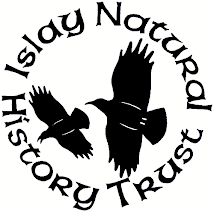Would you be interested in teaching and hosting students who wish to learn English as a foreign language on Islay?
Nicholas Waller will be visiting Islay this week with an idea and an opportunity for Islay to welcome students/individuals from different corners of the world to come and learn English on our island. His idea is to use the natural environment that Islay can boast for learning opportunities, and the wonderful sense of community and friendly welcoming people as a basis for developing a potential network of host families willing to help foreign individuals come and learn English. There would be some financial gain for the host families but more importantly a chance to exchange experiences and learning. We have offered to facilitate a meeting for anyone who is interested or just curious to come and hear what Nicholas has in mind, find out if there is potential and/or local interest in the idea.If interested or just curious come along to the INHT Nature Centre in Port Charlotte at 7pm this Thursday 12th April
An outline of Nicholas's plan/idea:
Nicholas Waller is visiting Islay this week in search of a place to launch a “Wild English” summer school, which will use the natural environment to teach English as a Foreign Language. Islay’s Natural History Centre makes it very attractive. Students will be mainly adults, from Europe, Russia and south-east Asia. They’ll spend a lot of time outdoors doing “citizen science” tasks set by wildlife and environment organisations like Scottish Natural Heritage.
As the summer school will bring in its own students, it won’t compete in any way with existing businesses, and students will be encouraged to arrive by public transport, not bring a car. The summer school, and it could go on all year round, will bring money into the community, especially for host families and local people interested in teaching or admin. (The basic EFL teaching qualification is the CELTA, which is quite quick and easy, plus at least 4 months intensive teaching practice in a language school, typically a big city summer school for foreign teenagers in Edinburgh, Oxbridge or along the south coast of England.)
English language lessons always have a theme. It’s usually either general English (pop culture, fashion, everyday life, relationships, “what I did on my holidays”) or business English (business meetings, negotiating, problems with suppliers). Simulated activities like these are getting less popular with students, and they’re not very motivating. At the same time “English Plus” courses are getting more popular, such as English plus yoga, English plus art appreciation, English plus golf, and now English plus the natural environment.
Nicholas isn’t here to represent any school or corporation, so please don’t expect to see massive investment, or dozens of students right away! He expects the school to start small and grow naturally. Students can be obtained via agencies, but Nicholas intends to build the school’s client base by producing a regular environmental blogspot with articles in “international English”, which is simplified English that’s graded for intermediate to advanced learners.
If you like the idea, please join in, or there’s no reason why you shouldn’t start your own similar venture; it’s not patented! In fact, the more Islay gets a reputation for high-quality English plus environment courses, whether from one school or half a dozen, the more everybody benefits.
Nicholas started his working life as a kayaking and mountain sports instructor. He was then a solicitor for 20 years before turning to EFL. He has other interests too, and his main motivation is doing high-quality work with happy, motivated students rather than getting rich quick. Host families should bear in mind that hosting a student pays less than running a B&B, but it’s more fun.
Nicholas has worked with adult students from Hitachi, Renault, HSBC, the German weather service, the French nuclear power organisation, and many others, but he’d rather work with eco-conscious students.
There’s more information on his website at www.linguetic.co.uk


















No comments:
Post a Comment